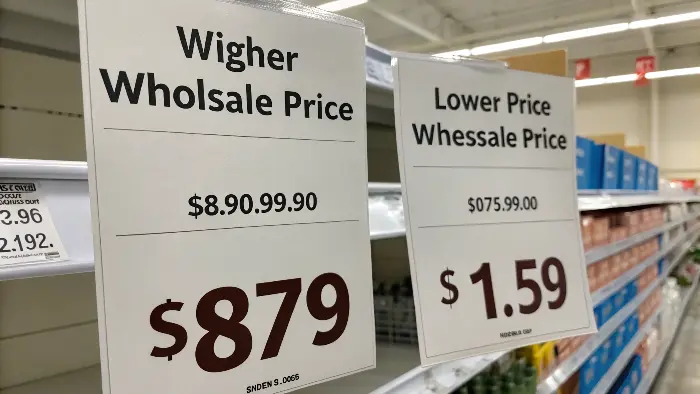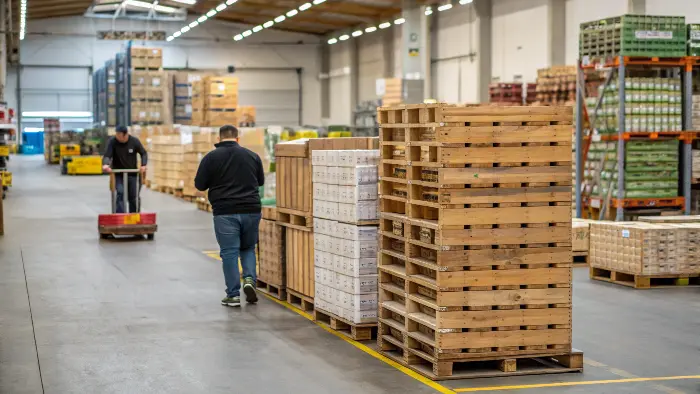Sourcing premium notebooks wholesale can be tough. Mistakes cost time, money, and your brand’s reputation. This guide gives you key insights for smart buying.
Understanding quality, customization options, building strong supplier relationships, and knowing the manufacturing process are all super important for wholesale buyers looking to source premium notebooks effectively.
Getting the best notebooks for your brand isn’t just about finding a supplier; it’s about understanding the whole game. I’ve been in this business for a while now, and believe me, there are a few things I wish I knew when I first started out. It’s a journey, and every bit of knowledge helps. So, let’s tackle some common questions I often hear from folks like Michael – an experienced product development manager and exactly the kind of person we love to partner with at Panoffices. We’ll try to shed some light on the wholesale world, especially when it comes to awesome stationery. Ready to get started?
Can a Normal Person Buy From Wholesale?
Feeling frustrated by high retail prices? Wondering if you can get those wholesale deals? Well, it often depends on the supplier’s terms and conditions.
Generally, wholesale is set up for businesses buying in bulk. However, some wholesalers might have minimum order quantities (MOQs) that smaller businesses, or even individuals for certain items, can meet.
This is a question I get a lot, and the answer is… well, it’s complicated! Traditionally, wholesale channels are built for business-to-business (B2B) transactions. Why? Because wholesale is about volume. When we at Panoffices manufacture a run of notebooks, it’s most efficient to produce a larger quantity. This helps keep the per-unit cost down for everyone.
Here’s what usually determines if a "normal person" (by which I usually take to mean an individual or a very small, perhaps unregistered, startup) can buy wholesale:
- Minimum Order Quantities (MOQs): This is the big one. Most manufacturers and wholesalers have MOQs. For premium, custom notebooks, these MOQs might be, say, 500 or 1000 pieces. This is often too high for an individual just wanting a few items. I remember when we were setting our initial MOQs at Panoffices; it was a real balancing act. We wanted to be accessible, but we also had to make sure our production runs were viable.
- Business Verification: Many wholesalers require proof of a registered business, like a tax ID or business license. This helps them ensure they’re dealing with legitimate resellers or businesses.
-
The "Who": If by "normal person" you mean someone starting a small Etsy shop or a local bookstore, then yes, absolutely! You’re a business, and we’re here to support you. The line can be a bit blurry. I once had a query from a university lecturer who wanted to buy a large batch of custom notebooks for an entire department event. Technically, she was an individual, but she was buying for an institution in bulk. We found a way to make it work!
At Panoffices, we try to be flexible, especially with new or growing businesses. If a potential partner has a fantastic vision and we see long-term potential, we’re often open to discussing smaller initial orders. It’s all about building that relationship.Buyer Type Typical Access to Wholesale Key Considerations for Them Our Approach at Panoffices Individual for Personal Use Very Limited High MOQs, business registration Usually not a fit, but we can offer advice Sole Trader / Small Online Shop Often Possible Meeting MOQs, payment terms We’re open! Let’s talk about your needs. Established Retail Business Yes, Standard Volume discounts, logistics Core part of our B2B service Corporate/Institutional Buyer Yes, Often Direct Customization, compliance, volume We excel in tailored solutions for these needs So, while it’s not typically like walking into a shop, for those with a business mindset or a need for bulk, accessing wholesale for items like notebooks is definitely achievable. The key is to communicate clearly with suppliers about your needs.
How Much Cheaper is Wholesale Than Retail?
Are those retail markups eating into your budget? Wholesale definitely promises savings, but how much exactly? The difference can be pretty substantial.
Wholesale prices are significantly lower than retail prices, often by 30% to 60%, and sometimes even more. This margin is what allows retailers to cover their operating costs and make a profit.

This is the golden question, isn’t it? Everyone wants to know how much they can save by buying wholesale. And the answer is: quite a lot, usually! But there isn’t a magic fixed percentage. I’ve seen it vary wildly depending on the product, the industry, and the volumes involved.
Think about a really nice A5 softcover notebook, maybe with premium paper and a custom debossed logo – something a brand like Michael’s would specify.- We, as the manufacturer (Panoffices), produce it. Our cost includes materials, labor, design input, quality control, and our operational overheads, plus a margin for us to stay in business and innovate. This gives us our wholesale price.
- We might sell this notebook directly to a large retail chain or a distributor.
- If it goes to a distributor, they add their markup and sell it to smaller retailers.
- The retailer (whether they bought from us or a distributor) then adds their markup. This covers their shop rent, staff salaries, marketing, utilities, and their profit. This final price is the retail price you see in a store.
The gap between our wholesale price and the final retail price can easily be 100% or more (meaning retail is double the wholesale price, or wholesale is 50% of retail). So if a notebook retails for €10, the wholesale price might have been anywhere from €3 to €5.
Why is the difference so big?
- Volume: We sell in hundreds or thousands. Retailers sell one at a time.
- Services Offered by Retailers: Retailers provide convenience, a physical browsing experience (or a curated online one), customer service, marketing that drives desire for the product, and they absorb the risk of unsold stock.
- Supply Chain Layers: Sometimes there are multiple steps (manufacturer -> importer -> distributor -> retailer), and each adds a little margin.
For a buyer like Michael, understanding this wholesale-to-retail price structure is vital. He needs to source notebooks at a wholesale price that allows his brand to set a competitive retail price while still achieving a healthy profit margin. It’s not just about how "cheap" wholesale is; it’s about the value it allows you to deliver to your end customers and the viability of your business model. We work closely with our B2B clients to ensure our pricing supports their market position. For instance, we might discuss how different material choices or customization levels affect the base wholesale price, allowing them to fine-tune their product for their target retail price point.How Much Should a Wholesale Discount Be?
Negotiating wholesale deals for your stationery line? Unsure what’s a fair discount or price point? It’s really a balance of many factors, not just a simple percentage.
A "wholesale discount" isn’t always a discount off a listed retail price. From a manufacturer like Panoffices, the wholesale price is the inherently lower price for bulk B2B orders, often 30-60% less than an eventual retail price.

When we talk about "wholesale discount," it can sometimes be a bit confusing. Let me try to clear it up from my perspective as a manufacturer.
If a company both manufactures and sells directly to consumers at a Manufacturer’s Suggested Retail Price (MSRP), then they might offer a percentage discount off that MSRP to their wholesale B2B customers. This is common in some industries.
However, for a specialized B2B supplier like Panoffices, we generally don’t focus on direct-to-consumer retail. Our entire pricing structure is built around wholesale. So, the price we quote you is the wholesale price. The "discount" is already factored in, representing the significant difference from what that product would eventually cost in a retail setting.
So, how do we arrive at that wholesale price for, say, a premium notebook? It’s based on several things: - Cost of Goods Sold (COGS):
- Materials: This is a big one. The type of paper (e.g., 80gsm, 100gsm, FSC-certified, recycled), cover material (PU leather, linen, kraft paper, specialty paper), ink, glue, and any special elements like ribbons or elastic bands. I remember a client, much like Michael, who was very specific about sourcing a unique, eco-friendly cover material from a particular region in Europe. That kind of bespoke sourcing naturally impacts the cost.
- Labor: The cost of skilled workers to assemble, stitch, glue, and finish the notebooks.
- Manufacturing Overhead: Factory costs, machinery maintenance, energy.
- Customization & Complexity:
- A standard notebook design will cost less than one with intricate debossing, foil stamping, custom printed endpapers, special page layouts (like planners or dotted journals), or unique sizes. Michael often requires notebooks with specific Pantone color matches for his brand, which involves precise ink mixing and testing.
- Order Volume (MOQ): This is crucial. Larger orders (e.g., 5,000 units vs. 500 units) allow for economies of scale in material purchasing and production setup, leading to a lower per-unit price. We often provide tiered pricing: the more you order, the better the price per notebook.
- Packaging: Does the client need individual shrink-wrapping, custom belly bands, branded gift boxes, or bulk packing? Michael’s brand, being a lifestyle brand, often requires attractive retail-ready packaging, which we factor in.
- Our Margin: Like any business, we need a margin to cover our operational costs (sales, design support, admin, R&D for new ‘smart stationery’ ideas!) and to reinvest in improving our services and quality.
So, instead of looking for a "discount percentage," a buyer like Michael should be looking at the total value proposition: the quality of the product, the reliability of the supplier, the flexibility in customization, the sustainability of materials, and a fair wholesale price that allows his business to thrive. It’s a partnership. We aim for transparency in our pricing, explaining how different choices impact the final cost.Do Wholesalers Buy Raw Materials?
Curious about who’s actually handling the paper, ink, and cover materials in the notebook supply chain? It really depends on the type of "wholesaler" you’re dealing with.
Manufacturers who also act as wholesalers (like us at Panoffices) absolutely do source and purchase raw materials. Pure distributors or merchant wholesalers, on the other hand, typically buy finished goods.

This is a great question because the term "wholesaler" can cover a few different types of businesses, and their involvement with raw materials varies a lot. Let me break it down from what I see in the stationery world:- Manufacturers (Like Panoffices):
Yes, absolutely, 100%! This is the heart of what we do. As a manufacturer of premium notebooks, we are deeply involved in sourcing, selecting, and purchasing all the raw materials. This includes:- Paper: Different weights (gsm), finishes (coated, uncoated), colors (ivory, white, cream), and certifications (like FSC-certified paper, which is increasingly important for environmentally conscious brands like the ones Michael develops for). We work with various paper mills.
- Cover Materials: This could be PU leather, genuine leather (less common for wholesale volume), linen, book cloth, recycled board, specialty textured papers, and more. We need to understand their durability, how well they take debossing or foil stamping, and their aesthetic appeal.
- Inks & Adhesives: For printing, ruling, and binding.
- Other Components: Elastic closures, ribbon markers, pocket materials, thread for stitching.
Our direct involvement in sourcing raw materials gives us—and our clients like Michael—significant advantages. We have much greater control over quality, can ensure consistency, manage costs more effectively, and innovate with new materials. For instance, if Michael needs a notebook that meets specific European compliance standards like REACH for certain chemicals, our control over raw materials is key to guaranteeing that. I recall one project where a client wanted a very specific tactile feel for their notebook covers. We tested several materials with our suppliers before finding the perfect match. That’s the kind of deep dive a manufacturer can do.
- Distributors / Merchant Wholesalers:
These businesses typically buy finished products in large quantities from various manufacturers (like us, or other notebook makers). They then sell these finished goods to retailers or other businesses. They generally do not buy raw materials themselves for the products they distribute. Their expertise lies in logistics, warehousing, sales, and managing a portfolio of products from different brands. - Agents or Brokers:
These individuals or companies act as intermediaries. They connect buyers with manufacturers but typically don’t take ownership of the goods or the raw materials.
So, if you’re working directly with a company like Panoffices, you’re working with a manufacturer that handles the entire process from raw material to finished premium notebook. This direct line is often what clients like Michael prefer, as it allows for more customization, better communication regarding material specifications, and a clearer understanding of the supply chain. It allows us to truly deliver on our "Smart Stationery, Better Work" promise by controlling the quality from the ground up.Conclusion
Sourcing premium wholesale notebooks means understanding pricing, supplier roles, and material choices. Partner wisely for lasting quality and true value, empowering your brand’s ultimate success.
- Manufacturers (Like Panoffices):

